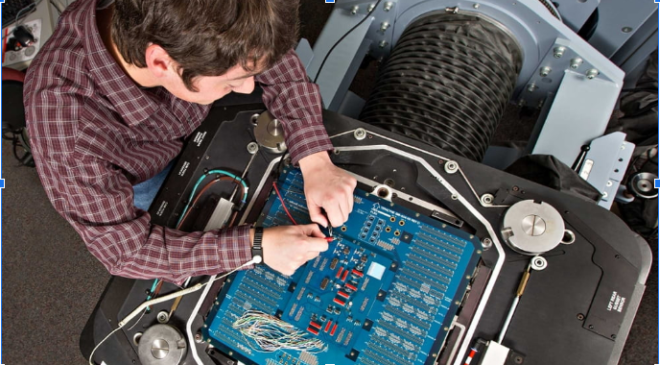Though it sometimes gets overlooked because of traditional engineering, engineering technology is an exciting area that is vital to the present world. Although having similar names, engineering and engineering technology are two quite different fields. This article will explain the primary elements of engineering technology in case you’ve ever asked what it is and why it matters.
Introduction to Engineering Technology
Table of Contents
A branch of engineering called engineering technology is concerned with using engineering concepts in everyday situations. Instead of creating whole new theories or systems, engineering technologists take existing ideas and apply them to practical situations. These experts make sure that everything goes easily and efficiently by serving as a link between the design process and the finished product.
The Difference Between Engineering and Engineering Technology
Engineering technology is more practical than engineering, which is primarily concerned with creating new technologies and theoretical ideas. Engineers may design a new machine, while engineering technologists are the ones who test and refine that machine to ensure it operates effectively. Consider technologists to be the builders who give the design life and engineers as the designers.
Key Areas of Engineering Technology
Numerous fields come under the general heading of engineering technology, all of which are vital for different sectors. Among the important specialties are:
Mechanical Engineering Technology: This is mostly concerned with the development, testing, and testing of mechanical devices. Everything from engines to industrial processes are examples.
Electrical Engineering Technology: This connects to power distribution, generators, and networks in electrical systems.
Civil Engineering Technology: Experts in this field help in the planning and construction of facilities including buildings, roads, and bridges.
Computer Engineering Technology: Working with hardware, software, and systems incorporation are all part of this.
Practical Skills in Engineering Technology

The need for practical skills is one of the defining characteristics of engineering technology. Engineering technology programs are practical in contrast with theoretical engineering degrees, which place an extreme value on math and science. Students gain knowledge in operating machinery, interpreting blueprints, and resolving practical issues. Because of these abilities, engineering engineers are highly valued in industries such as IT, manufacturing, and construction.
The Educational Path for Engineering Technologists
A technical college or university associate’s or bachelor’s degree is usually required for admission as a technician in engineering. With a focus on laboratories, internships, and practical projects, these courses are very practical. Depending on the area of specialty, courses may cover manufacturing procedures, circuit analysis, and mechanical design.
The Role of Engineering Technologists in Industry
In the industry, engineering technologists interact with engineers and technicians to make sure that systems work properly. They often function as a point of contact for the professionals who install or fix the product and the engineers who create it. Their function is essential for maintaining production lines’ efficiency, streamlining procedures, and resolving operational issues.
Industries That Rely on Engineering Technologists
Many industries depend on engineering technologists, some of which are as follows:
Manufacturing: Technologists examine manufacturing problems and make sure machinery works efficiently.
Telecommunications: Network and hardware system maintenance is the responsibility of engineering technologists in this rapid business.
Construction: The safe and well-planned construction of buildings, roads, and other facilities is largely dependent on the work of civil engineering experts.
Energy: Technologists manage and optimize energy systems, ranging from power plants to renewable energy efforts.
Engineering Technology and Innovation
Even though they might not have created the initial idea, engineering engineers frequently lead the way in innovation. Technologists improve their disciplines by discovering ways to increase the efficiency of production processes or by making current designs more useful. Their practical knowledge helps them to find useful enhancements that engineers with a theoretical bent might miss.
Job Outlook and Career Opportunities
Engineering technicians are in high demand and are expected to continue growing. Industry statistics state that there is a major lack of qualified technicians in fields including information technology, manufacturing, and renewable energy. These experts frequently operate on production lines as supervisors, project managers, systems analysts, and quality control specialists. It is expected that the need for technologists will rise even more as automation and smart manufacturing grow.
The Future of Engineering Technology
Engineering technology appears to have a bright future, particularly given the speed at which fields like automation, robots, and renewable energy are developing. The people who will be most responsible for making sure these technologies are used successfully will be engineering technologists. In the upcoming decades, there will be more chances for technologists as we move toward greener technology like renewable energy sources and electric cars.
Read More: https://viralcontentreview.com/benefits-of-technology/







